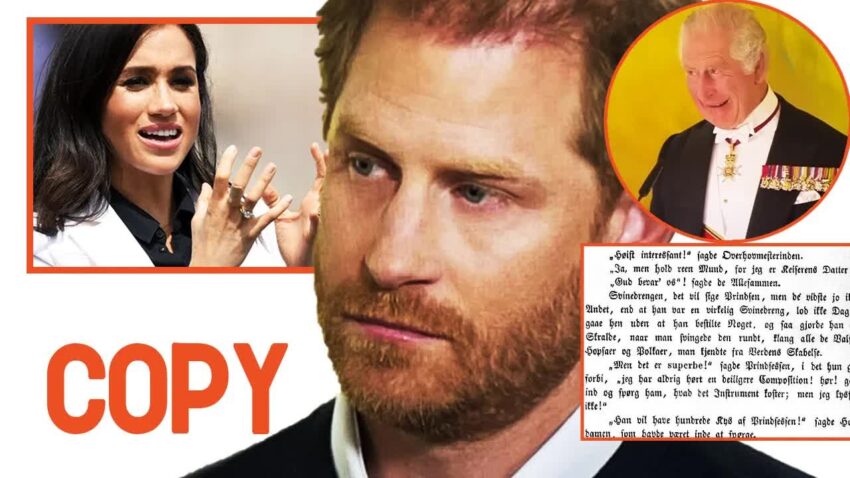Prince Harry and Meghan Markle, the Sussexes, found themselves embroiled in a heated dispute following Harry’s attempt to mimic his father, King Charles’s, fluent German speech.
The public spectacle unfolded as Prince Harry, aged 38, took the virtual stage at an Invictus Games event held in Berlin.
However, his efforts to speak German were met with criticism from an expert in body language analysis.
In a surprising turn of events, Prince Harry had recently announced his intention to attend King Charles’s upcoming coronation, a decision that garnered significant attention.
This marked his first public appearance since the announcement, where he endeavored to address the audience in German during the Invictus Games event.
Despite his efforts, the reception from the German audience was less than enthusiastic.
The scrutiny intensified as comparisons were drawn between Prince Harry’s linguistic abilities and those of his father, King Charles, who has been lauded for his proficiency in German.
A German national expressed admiration for King Charles’s eloquence in the language, contrasting it with Prince Harry’s academic performance, which included a controversial grade in Art and a lackluster result in Geography during his A-level examinations.
Notably, the royal family has a history of multilingualism, with Prince Philip being fluent in German due to his education in the country.
Similarly, Queen Elizabeth was known for her fluency in French.
Sources indicated that it was Meghan Markle who had suggested Prince Harry’s attempt at speaking German, a move that appeared to spark controversy given King Charles’s recent German-speaking engagement.
Judy James, a specialist in body language interpretation, offered insights into Prince Harry’s demeanor during the speech, noting similarities to his father’s approach.
She remarked on the contrast between the expectations placed on world leaders to be multilingual and the royal family’s tendency to communicate in the native language of their audience, often viewed as a charming gesture.
Analyzing Prince Harry’s delivery, Judy James observed a sense of hesitancy and self-consciousness, particularly evident in his physical gestures such as shoulder shrugs and subtle movements.
In comparison, King Charles displayed a greater confidence and engagement with the language during his recent public address in Germany.
The expert highlighted King Charles’s progression in comfort and fluency throughout his speech, including moments of humor and connection with the audience.
This contrasted with Prince Harry’s more tentative approach, characterized by a lack of sustained eye contact and vocal intonation, signaling a lower level of confidence in his linguistic abilities.
In conclusion, the royal language debacle shed light on the complexities of cross-cultural communication within the monarchy, showcasing varying levels of linguistic prowess and confidence among its members.
Despite the misstep in Prince Harry’s German speech, the incident underscored the enduring fascination with the royal family’s interactions and public appearances.
